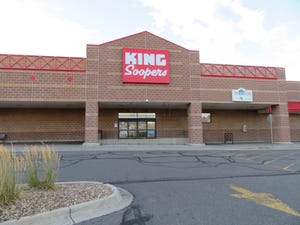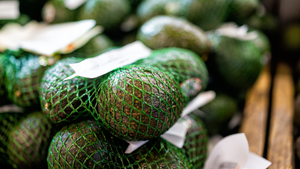Addressing food production concernsAddressing food production concerns
January 1, 2018
In a world of increasing food insecurity, millions of hungry people and rising food prices, a trip to the grocery store has some consumers increasingly concerned about the impact on their pocketbook. Now more than ever, technology plays an important role in the food industry. It can deliver more economical choices in a more sustainable manner while providing consumers safe, wholesome food choices.
Yet, in conversations in boardrooms and with leaders in some countries, we have often heard, “but they don’t want technology used in food production.” Unearthing the identity of the mysterious “they” proved a difficult task. As a result, Elanco set out to better understand this concern. What do consumers really consider when making food purchases? Is there significant concern about food production practices?
Elanco commissioned a team of independent researchers to identify consumer opinions on technology use in food production. The result was the International Consumer Attitudes Study (ICAS) , which evaluated 28 studies from 26 countries representing nearly 100,000 consumers. To be included, studies must have used actual consumer spending data, or unaided (open-ended) questions to minimize bias. The findings are the foundation of our newest white paper, inserted in this issue of Grocery Headquarters.
The review found that 99% of consumers are looking for taste, cost, nutrition and some lifestyle choice when they purchase food. More specifically, 95% of consumers are conventional food buyers. They choose foods based on taste, cost and nutrition—in that order. They are either neutral or supportive of using efficiency-enhancing technologies to grow food.
Only 4% of consumers purchase foods largely based on lifestyle factors. They are looking for luxury, gourmet, organic, locally grown or other types of products. Price isn’t a key decision factor for this group. My personal luxury addiction is coffee.
It is important to note the two groups tend to overlap in many areas, depending on personal tastes and preferences. They are not distinct market segments.
So who are the “they” who seem to be affecting decisions about the types of food products that are available and the types of practices used in production?
It turns out that “they” are a small fringe of less than 1 %—a small but loud voice that has been trying to impose their opinions on others. This group is focused on imposing technology bans and legislating away consumer choice. They participate in protests and rallies to “protect” consumers from modern food production “threats.” Yet their efforts tend to have far-reaching and often negative consequences such as decreasing consumer choice and increasing consumer costs, no matter how unintended.
With a better understanding of “they,” I believe we as a food industry can better evaluate addressing one of the greatest challenges of our century—feeding a population expected to reach 9 billion in the next 40 years while freezing the footprint of food production to maintain our planet.
I believe the answer revolves around technology and choice. Technology ensures three basic rights:
1) Food, a moral right;
2) Choice, a consumer right; and
3) Sustainability, which is environmentally right.
No longer can we let these rights be jeopardized by the “they” that represent a tiny fraction of consumers. As a food industry, we need to serve the 99% that want taste, cost, nutrition and some lifestyle choice.
We are at a crossroads. In the past two years, the global economic recession has decreased consumer buying power and increased food insecurity. More than 1 billion people around the world suffer from hunger and malnutrition, including children who suffer from hidden hunger right here in our own cities. In the next two years, tight supplies and rising food prices could threaten our system further. This issue is becoming center stage and we, as a food industry, have the ability to engage and make a difference.
Jeff Simmons is president of Elanco, an animal health company committed to animal protein production and food safety, with an emphasis on helping the food industry produce a safe, affordable, abundant food supply. Additional perspectives on this topic can be found at www.plentytothinkabout.org.
About the Author
You May Also Like




